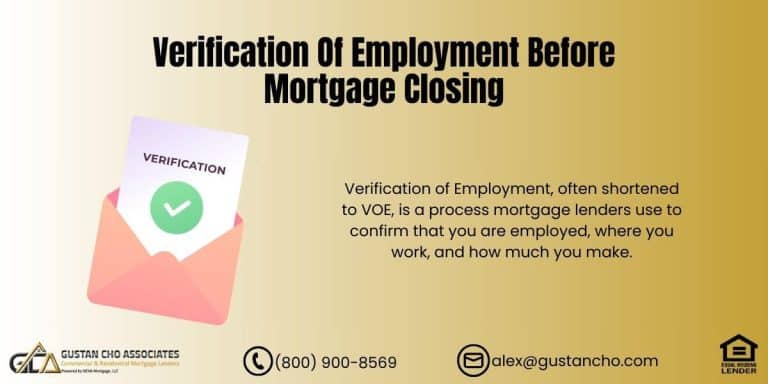How to Prepare Your Credit for Mortgage in 2024: Your Guide to a Smooth Approval
Buying a home is a big step, and preparing your credit can make all the difference in getting approved with a great mortgage rate. Whether buying your first home or considering refinancing, getting your credit ready for a mortgage is important. It can help you save a lot of money over the life of your loan.
In this guide, we’ll cover practical steps to improve your credit, the importance of credit scores, and what to expect in the mortgage approval process in 2024. Let’s get started on making your credit mortgage-ready!
Why Credit Scores Matter for Mortgages
Your credit score impacts more than just approval; it affects your interest rate, loan terms, and monthly payment amount. A higher credit score typically results in a reduced interest rate, which can help you save money each month.
Lenders utilize credit scores to evaluate the potential risk of lending you money. The following outlines how the typical score ranges are categorized for mortgages:
- 740 and above: Excellent – Qualifies for the best rates
- 700 – 739: Good – Good rates and terms
- 660 – 699: Fair – Acceptable but may pay higher rates
- 620 – 659: Acceptable – Likely approved but with higher costs
- Below 620: Poor – Limited options; might require alternative lending
For the lowest rates in 2024, aim for a credit score of at least 740.
Ready to Buy a Home? Prepare Your Credit and Get Approved for a Mortgage!
Contact us today for tips on how to improve your credit and get pre-approved for your dream home.
How To Prepare Credit For Mortgage
Preparing your credit takes time, so start early—ideally, six to twelve months before applying. If your timeline is shorter, don’t worry; there are still ways to improve.
1. Check Your Credit Reports for Errors
Get a free copy of your credit report from AnnualCreditReport.com for all three major bureaus (Equifax, Experian, and TransUnion). Review these reports carefully for:
- Incorrect accounts
- Late payments you know you made on time
- Accounts that aren’t yours
- Outdated information
If you notice a mistake, address it straight with the credit bureau. Mistakes can negatively impact your score, and fixing them may instantly enhance it.
2. Know Your Mortgage FICO Scores
Lenders use specific FICO scores for mortgages, typically FICO Score 2, 4, and 5. While consumer sites like Credit Karma provide general credit scores, they’re not the same scores lenders use.
Inquire with your lender or a mortgage broker about your mortgage FICO scores to understand your current standing.
3. Reduce Credit Card Balances
High credit card balances hurt your credit score, even if you make timely payments. Aim to keep balances below 10% of your credit limit. This is called your credit utilization ratio, and it greatly impacts your score.
If you have time, gradually pay down your credit card balances. It’s smart to do this in advance, as it may take a month or two for the credit bureaus to update your balances.
4. Avoid New Credit Inquiries
Every hard inquiry on your credit report can reduce your score by several points. Having several inquiries within a brief period might suggest to lenders that you urgently need credit, which could raise concerns.
In 2024, it’s still safe to shop around for a mortgage within a 45-day window, as credit bureaus count these inquiries as one for mortgage rate shopping purposes.
Quick Wins to Boost Your Credit Score Fast
If your mortgage application is close and you need a quick boost, try these strategies:
- Pay Down Small Balances First: Settling small credit card debts can enhance your credit utilization ratio.
- Remove Authorized User Status: If you’re an authorized user on someone else’s credit card and they carry high balances, consider removing yourself.
- Request Higher Credit Limits: If you have a strong relationship with your credit card issuer, consider requesting a higher credit limit to reduce your utilization ratio—but avoid using that increased limit!
What If I Have No Credit History?
No credit can sometimes be as challenging as bad credit. Lenders want to see a history of on-time payments, and there’s nothing to show with no credit accounts. If you’re starting from scratch:
- Get a Secured Credit Card: Secured credit cards only need a small deposit and are generally easier to qualify.
- Request to be an Authorized User: Approach a family member with a strong credit history and request to be added as an authorized user on their credit card.
Building credit from scratch takes time, so start at least a year before applying for a mortgage.
Handling Collection Accounts
Unpaid collection accounts don’t always have to be paid off to get approved for a mortgage. However, paying off old collections can sometimes hurt your credit score by making the account “active” again.
If you must resolve an outstanding account, consider negotiating a “pay-for-delete” arrangement, in which the collection agency consents to completely remove the account from your credit report.
Late Payments and Derogatory Items: What You Need to Know
Late payments, especially recent ones, can be a major obstacle. If you’ve had late payments in the last 12 months, opening secured credit cards may help build a new positive history.
Important note for 2024: Medical debt collection accounts under $500 are no longer included in credit reports, which can provide a helpful boost for some borrowers.
Need Help Preparing Your Credit for Mortgage Approval? Let Us Guide You!
Contact us today to learn the steps you can take to get ready for home financing.
Avoid Credit Disputes During the Mortgage Process
Credit disputes can hold up your mortgage application. If you have open disputes, the lender might ask you to resolve them before they proceed with approval. Because disputed accounts can artificially inflate credit scores, lenders want a clear view of your credit history.
If you’re considering disputing items, do it before applying for a mortgage to avoid last-minute delays.
Monitoring Your Credit Regularly
Credit monitoring tools like Credit Karma, Experian, and Credit Sesame can keep you on top of your credit score. While these scores aren’t identical to your FICO mortgage score, they can help you stay on track.
Final Thoughts: Start Today for Mortgage-Ready Credit in 2024
Preparing your credit for a mortgage can be one of your best financial decisions. With a bit of preparation, you can set yourself up for approval with favorable terms and rates. Remember, every step—from checking for errors to lowering balances—brings you closer to your goal of homeownership.
If you’re ready to take the next steps, contact a mortgage professional who can guide you through the process, help you understand your credit, and offer tips to make your application shine. For questions or personalized guidance, call Gustan Cho Associates at 800-900-8569 or email us at alex@gustancho.com.
Your journey to homeownership starts here! Take control of your credit, and make your dream home a reality.
Frequently Asked Questions About How to Credit for Mortgage:
Q: Why is it Important to Prepare My Credit for a Mortgage?
A: Preparing your credit for a mortgage can help you get a better interest rate, which in turn can save you money over the life of the loan. This guide explains how to prepare credit for a mortgage effectively.
Q: How Early Should I Start Preparing My Credit for a Mortgage?
A: Ideally, it would help to start preparing your credit six to twelve months before applying. However, if you’re short on time, there are still steps you can take to improve your credit.
Q: What’s the First Step in Preparing My Credit for a Mortgage?
A: Check your credit report for mistakes. Errors can lower your score, so it’s important to fix any inaccuracies before applying for a mortgage.
Q: How Does My Credit Score Influence My Mortgage Interest Rate?
A: A better credit score can get lower interest rates, lowering your monthly payments. Getting your credit ready for a mortgage can assist you in obtaining these reduced rates.
Q: What Credit Score Do I Need to Get the Best Mortgage Rates?
A: To get the best mortgage rates, try to have a credit score of at least 740. But don’t worry if your score is lower; lenders provide mortgages for different credit scores.
Q: How Can I Quickly Boost My Credit Score if I’m Close to Applying?
A: Paying down small balances, avoiding new credit inquiries, and requesting higher credit limits are quick ways to enhance your score before applying for a mortgage.
Q: Can I Get a Mortgage if I Have no Credit History?
A: Yes, it can be harder. To prepare your credit for a mortgage, you can build a credit history with a secured credit card or by becoming an authorized user.
Q: What Should I Avoid Doing While Preparing My Credit for a Mortgage?
A: Refrain from opening new credit accounts, making late payments, or starting credit disputes shortly before applying for a mortgage. These behaviors can adversely affect your credit score.
Q: How Do Unpaid Collections Affect My Ability to Get a Mortgage?
A: Unpaid collections don’t always need to be paid off, but paying them can sometimes harm your score. Consider a “pay-for-delete” agreement to remove them from your report if necessary.
Q: What Credit Monitoring Tools Can Help Me Prepare My Credit for a Mortgage?
A: Tools like Credit Karma and Experian can help you track your credit. While they don’t show your exact mortgage FICO score, they give an idea of where you stand.
This blog about “How To Prepare Credit For Mortgage and Get Approved” was updated on November 14th, 2024.
Prepare Your Credit for Mortgage Approval and Unlock Your Path to Homeownership!
Contact us today to find out how we can help you improve your credit and get pre-approved for a mortgage.










